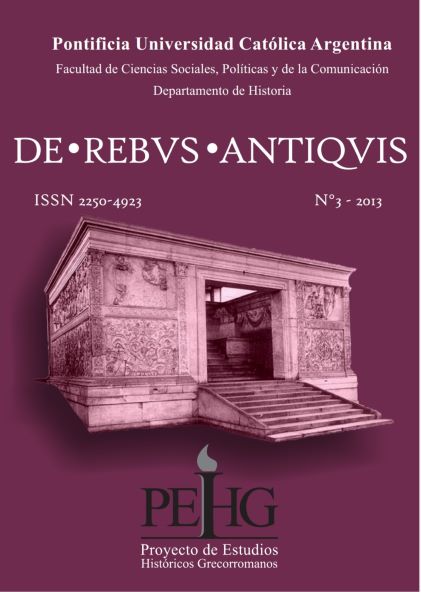Hellenistic Symbols in the imperial conception of power of Caligula
Keywords:
Caligula, Roman Principate, Conception of power, Hellenistic Monarchy, SymbolsAbstract
The way of exercising power of the Roman Princeps Gaius Caesar Augustus Germanicus, better known by his agnomen Caligula, was largely driven by a different pattern of behavior of that promoted by his predecessors Augustus and Tiberius. Through a kind of ritualized acts, these princeps sought to show respect for the traditional social order and appear only as a primus inter pares among Roman aristocrats. As we can see, in this matter the young Gaius caused a radical change on imperial politics. From the valuation of a series of symbols and actions with strong symbolic connotations, in this work we will attempt to show that such a change was, in part, consequence of a new conception of the imperial power displayed by Caligula. The essence of such conception we must search it in the complex corpus of ideas that came to Rome from the pars orientis of the Roman Empire and based important aspects of the power of the Hellenistic Monarchies.
Downloads
Downloads
Published
How to Cite
Issue
Section
License










